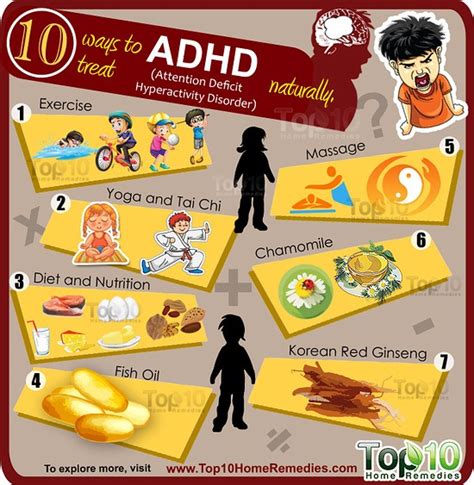How to Treat ADHD: A Comprehensive Guide
Attention-Deficit/Hyperactivity Disorder (ADHD) is a neurodevelopmental disorder affecting millions worldwide. Characterized by inattention, hyperactivity, and impulsivity, ADHD can significantly impact daily life. Fortunately, effective treatments are available, offering improved focus, reduced impulsivity, and better overall well-being. This guide explores various ADHD treatment approaches, helping you navigate the path to better management.
Understanding ADHD Treatment Options
Treatment for ADHD typically involves a combination of strategies tailored to individual needs and severity. There's no one-size-fits-all approach; what works for one person might not work for another. The most common treatment options include:
1. Medication:
Stimulant Medications: These are the most commonly prescribed medications for ADHD. They work by increasing the levels of dopamine and norepinephrine in the brain, neurotransmitters crucial for focus and attention. Common examples include methylphenidate (Ritalin, Concerta) and amphetamine (Adderall, Vyvanse).
Non-Stimulant Medications: These medications affect different neurotransmitters and are often prescribed for individuals who don't respond well to stimulants or experience significant side effects. Atomoxetine (Strattera) is a common example.
Important Note: Medication should only be prescribed and monitored by a qualified healthcare professional, such as a psychiatrist or pediatrician. They will assess your specific needs and determine the appropriate medication and dosage. Never self-medicate.
2. Therapy:
Behavioral Therapy: This approach focuses on teaching coping mechanisms and strategies to manage ADHD symptoms. Techniques like behavioral modification, reward systems, and organizational skills training can significantly improve daily functioning.
Cognitive Behavioral Therapy (CBT): CBT helps individuals identify and change negative thought patterns and behaviors that contribute to ADHD challenges. It emphasizes problem-solving and developing more adaptive coping strategies.
Other Therapies: Depending on individual needs, other therapies might be beneficial, including social skills training and family therapy. Family therapy can be especially helpful in improving communication and support within the family unit.
3. Lifestyle Changes:
While medication and therapy are cornerstones of ADHD treatment, lifestyle changes play a vital supporting role. These include:
- Regular Exercise: Physical activity can improve focus and reduce hyperactivity.
- Healthy Diet: A balanced diet can positively impact energy levels and brain function. Limiting processed foods, sugar, and artificial additives is often recommended.
- Sufficient Sleep: Getting enough sleep is crucial for optimal brain function and cognitive performance.
- Stress Management: Implementing stress-reduction techniques like mindfulness and yoga can be very beneficial.
- Organizational Tools: Utilizing planners, calendars, and other organizational aids can help improve time management and task completion.
Finding the Right Treatment Plan
Finding the right treatment plan involves collaboration with healthcare professionals and self-reflection. Here are some steps to consider:
- Seek Professional Evaluation: A thorough evaluation by a psychiatrist or psychologist is essential for accurate diagnosis and treatment planning.
- Discuss Treatment Options: Openly discuss various treatment options with your doctor, weighing the benefits and risks of each approach.
- Monitor Progress: Regularly monitor the effectiveness of your treatment plan and make adjustments as needed.
- Be Patient and Persistent: Finding the right treatment plan often takes time and patience. Don't get discouraged if the first approach doesn't work perfectly.
Keywords: ADHD, ADHD treatment, ADHD medication, ADHD therapy, behavioral therapy, CBT, stimulant medication, non-stimulant medication, lifestyle changes, managing ADHD, coping with ADHD
This article provides general information and should not be considered medical advice. Always consult a healthcare professional for diagnosis and treatment of ADHD.
